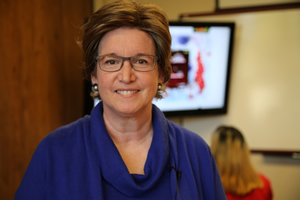U California Santa Barbara Launches Multidisciplinary Game Research Center
 The University of California, Santa Barbara (UCSB) has launched the Center for Digital Games Research to study digital media and games from a multidisciplinary approach.
The University of California, Santa Barbara (UCSB) has launched the Center for Digital Games Research to study digital media and games from a multidisciplinary approach.
Launched with seed funding from the Robert Wood Johnson Foundation, the center brings together 30 faculty members with expertise in "human-computer interaction, virtual environments, simulations, social networks, data mining, interactive storytelling and narrative, media neuroscience and behavioral health," among others, according to a news release.
"Many of our affiliated faculty members investigate players' cognitive and emotional responses to digital media and games, and how these responses can be used to advance player knowledge, skills, attitudes and behavior as a way to move design and implementation forward," said Debra Lieberman, director of the center and a researcher at UCSB's Institute for Social, Behavioral and Economic Research.
The grant and launch of the center follows a 2007 grant from the foundation for an $8.25 million effort dubbed Health Games Research, also led by Lieberman, designed to offer scientific leadership for the health games field. That initiative funded 21 research projects across the country looking into the design and effectiveness of health games.
"The field has grown enormously, and the research has, too," said Lieberman, in a news release. "UCSB saw an opportunity to continue our work in a way that would include the university's faculty from many academic disciplines and would bring together their wide range of research and development expertise. The Robert Wood Johnson Foundation liked the idea and provided start-up funding to help us establish the center."
One example of the kind of researching underway at the center includes that of Frank Doyle, professor and chair of chemical engineering at UCSB. Doyle is working on an artificial pancreas to deliver insulin for people with type-I diabetes and says he sees games as a tool that can help people manage their diseases.
"One of the biggest challenges in introducing this technology to our subjects is the behavioral aspect of presenting complex digital technology to individuals who are not necessarily engineers or computer experts," said Doyle, in a news release. "Using digital games as a training medium to make the subjects more comfortable — particularly the adolescents and children — we think is a beautiful marriage between the engineering technology we have and the behavioral and digital games research going on at the center."
"We have the engineering team working on algorithms, we have medical doctors testing the technology in the clinic, and then we have scientists working on the behavioral dimension — the interface between the human and the technology," added Doyle. "There's a profound link between what we're doing and the behavioral aspects that come out of things like digital games research."
Other initiatives at the center include projects looking into how brains change during media use, health-monitoring cellphone sensors, the use of tablet games for English language learning and the use of interactive technologies.
Aside from research, the center also maintains an online health games database that allows users to search for information, related publications, events, organizations and other resources.
"The database has been widely used over the past several years and we have received very positive feedback from our users, who appreciate having a comprehensive collection of games-related resources assembled in one place that is easy to use and navigate," said Erica Biely, associate director at the center, in a prepared statement.
"As we work to build a Culture of Health, digital games — which are ingrained in the daily lives of Americans across the ages — have a role in helping us make healthier decisions and foster healthier lifestyles," said Paul Tarini, Robert Wood Johnson Foundation senior program officer, in a prepared statement. "We have good evidence that games can be used to improve health. The Center for Digital Games Research will put that knowledge to work, guiding gamers and designers in developing the next generation of health games."
More information is available at cdgr.ucsb.edu.
About the Author
Joshua Bolkan is contributing editor for Campus Technology, THE Journal and STEAM Universe. He can be reached at [email protected].